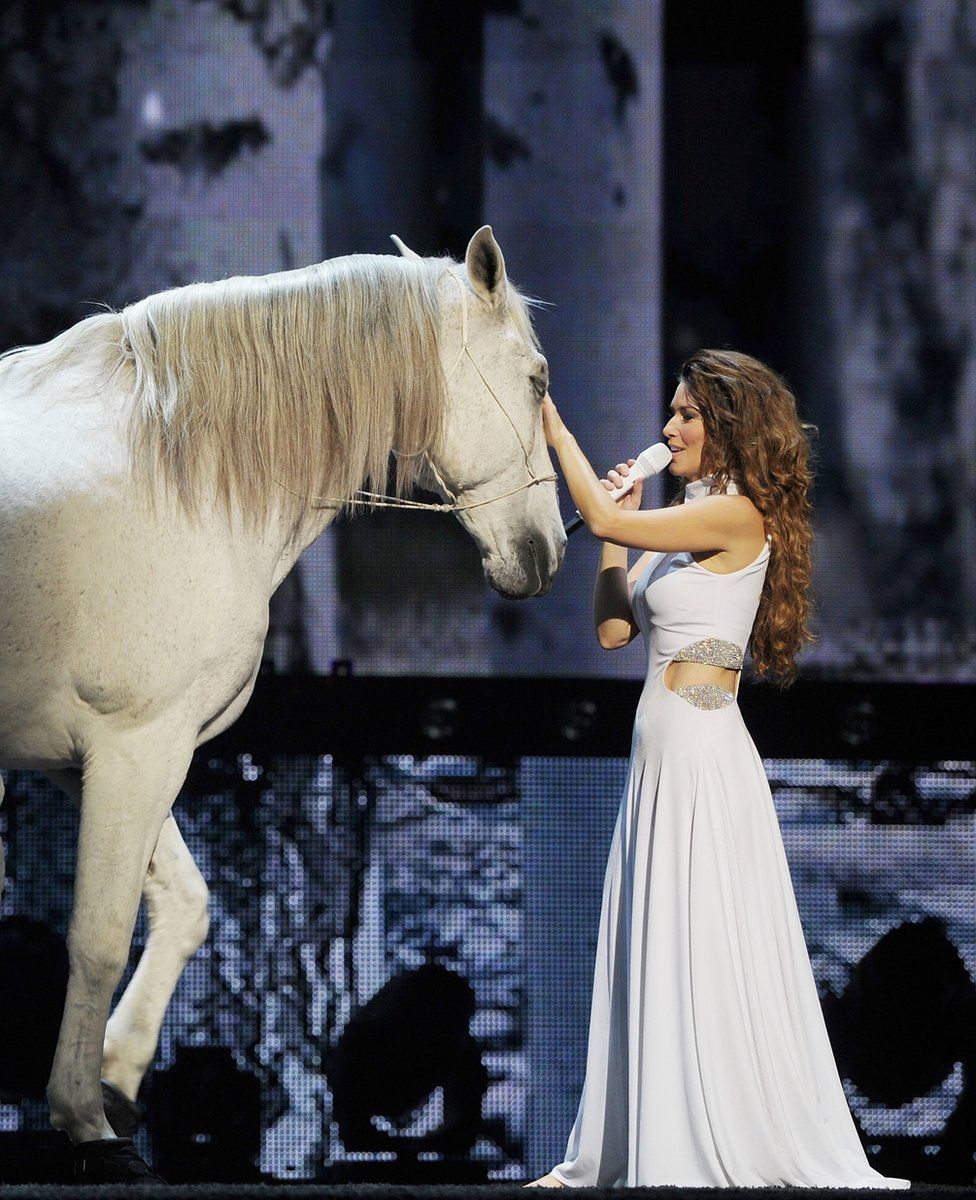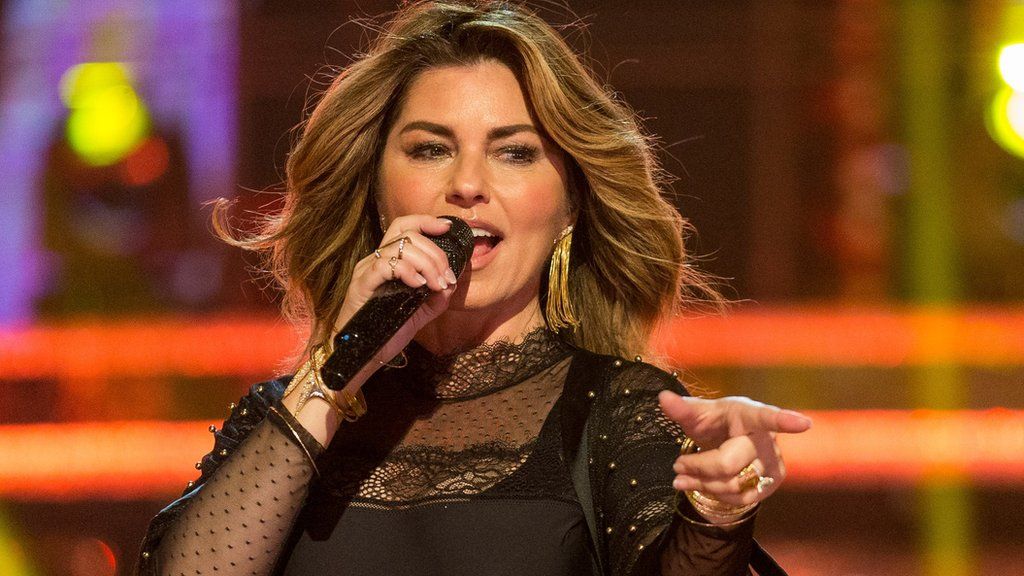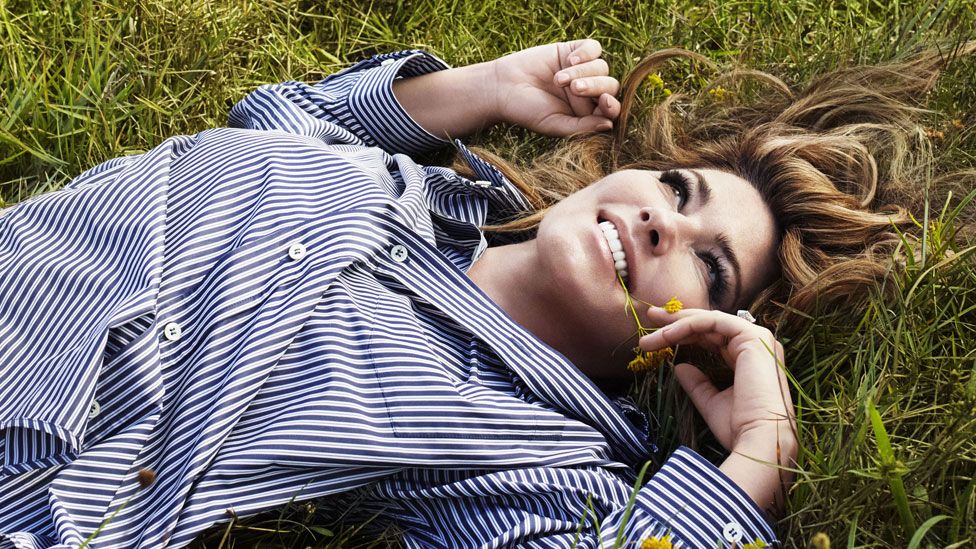Shania Twain: I was touch and go with Covid
Shania Twain’s recent Netflix documentary, Not Just A Girl, captures footage of the country megastar in London working on her sixth album.
She pulls up in a black cab, her hair tied in a knot, and plonks down on a sofa to record a song called What You Gonna Do With That Air?
It’s a bright pop anthem that has Twain punching the sky as she reaches the chorus… but it turns out the inspiration was much darker.
“It’s about the anxiety of running out of air,” the singer explains.
“I had a very bad bout with Covid, with Covid pneumonia, and it was very touch-and-go. I was feeling like, oh my God, I just have to breathe.”
The condition was particularly frightening because Twain had experienced that constriction in her throat before.
At the height of her fame in 2003, she was bitten by a tick and contracted Lyme disease, causing nerve damage to her vocal cords that stopped her singing for almost a decade.
She only recovered after open throat surgery, re-emerging in 2012 with a newfound rasp to play the first of two blockbuster Las Vegas residencies.
After Covid, Twain came out swinging again. What You Gonna Do With That Air is both a celebration of life and a challenge to herself: what will you do with the extra time you’ve been given?
“The Super Bowl would be a great one,” she smiles, referring to the high-profile half-time show. “That’s a good target. I just need to think about which songs.”

The 57-year-old has always been a survivor.
Born in California, childhood was tough. She recalls her parents being unable to afford food and “the humiliation of going to school dirty because we didn’t have water”.
“It took a lot of mental management to keep your chin up and function without letting it shut you down.”
There was violence at home, too. In her autobiography, Twain recalled a night when her mother’s second husband knocked his wife unconscious then tried to drown her in the toilet. Twain grabbed a chair and smashed it across his back. He punched her in the jaw. She retaliated. At the time, she was 11 years old.
“Thank God for music, because I was literally able to escape my reality,” she says.
“I started to see my guitar as a teddy bear. Even now, if there’s a guitar in the room, I just want to sit and hold it. I don’t need to do anything with it, it’s just kind of like a blankie.”
Music business bear pit
As her talent grew, Twain’s mother pushed her on stage. She would often be pulled out of bed at one in the morning to play local clubs, where licensing laws meant she couldn’t sing while alcohol was being served.
Although she was making a name for herself, her ambition was not to become a star, but to sing backing vocals for Stevie Wonder.
“I didn’t have any desire to be in the front,” she recalls. “I always had terrible stage fright.”
When she was 21, fate cruelly intervened. Twain’s mother and stepfather died in a car crash and she was forced to take a job singing in a local resort to support her younger siblings. That ultimately led to a recording contract, and she was thrown into the bear pit of the music industry.
“But by the time I made it to Nashville, I was like, OK, this doesn’t scare me. I’m not afraid of a few sexist men. I made it through my childhood and the rest was a lot easier.”


She certainly needed resilience. Early headlines asked questions like: “She’s hot, but can she sing?”, while musician Steve Earle notoriously called her “the highest-paid lapdancer in Nashville”.
But Twain had the last laugh. She became one of the first “crossover” stars, successfully fusing country melodies to the bombast of stadium rock.
The formula was all hers (while other country singers idolised Patsy Cline, she sang Pat Benatar in a teen covers band), but it was realised by her then-husband Robert “Mutt” Lange, the producer behind AC/DC’s Back In Black and Def Leppard’s Hysteria.
Their first album together, 1992’s Come On Over, sold more than 40 million copies, thanks to the megaballad You’re Still The One and funny, empowering anthems like That Don’t Impress Me Much. It’s still the world’s best-selling album by a female artist, and the ninth best-seller of all time in the US.
“I’ve been accused of changing the sound of country music forever,” she says matter-of-factly. “But I’ve also been accused of ruining country. I’ve been accused of a lot of things.”
Despite the criticisms, Twain’s songs avoid anger and retribution. When she writes about feminism, on tracks like Man! I Feel Like A Woman!, the lyrics are life-affirming and celebratory.
“There’s no point in being angry. It doesn’t get us anywhere,” she says. “Every man that I see singing Man! I Feel Like A Woman! is doing it in a good spirit, because that was my intention.
“This is not a man’s world and it’s not a woman’s world. This is our world and we have to share it respectfully.
“But I will stand up for myself and I will tell you if I feel you’ve crossed the line.”
Twain was in the middle of a world tour when she caught Lyme disease. In her documentary, she recalls how the symptoms included “millisecond blackouts” that occurred once every minute.
“Before I was diagnosed, I was on stage very dizzy. I was afraid I was gonna fall off.”
It wasn’t just the end of her career that Twain faced at that moment, but the end of her marriage. Lange was having an affair with her best friend, Marie-Anne Thiébaud, and they divorced in 2008. (Twain later married Thiébaud’s ex-husband, Frederic, a complicated development that her documentary subtly leaves to one side.)
Those feelings all fed into her last album, Now, released in 2017 and written entirely on her own.
“I tried to scream/But silence haunted/Me in my sleep/Oh, and probably always will,” she sang on the slow-burning ballad I’m Alright.
On her forthcoming album, however, Twain’s irrepressible optimism is back.
“With the pandemic, I just really wanted to cheer myself up,” she says. “As we all know, it was a very stifling and crippling emotional and mental exercise that endured for months and months and months.
“So I was like, I just want to be happy! And to me, that was writing happy songs and playing with words again.”
A release date for the album is still to come – but the first single, Waking Up Dreaming, has gone straight onto BBC Radio 2’s playlist.


The music arrives as Twain’s stock is on the rise, with artists like Taylor Swift, Avril Lavigne and Haim singing her praises as a trailblazer and a feminist icon.
Harry Styles is a fan, too, asking the star to duet with him at the Coachella Festival.
“It’s surreal that I have classic music and I’m still alive,” she laughs. “I feel like it’s happening too soon, almost.
“The funny thing is, I remember seeing all these little kids at my concerts all these years ago, and now they’re grown up and they’re the Harry Styles and the Taylor Swifts.
“Look at what I’ve done!”
- 23 April 2018

- 26 September 2017















